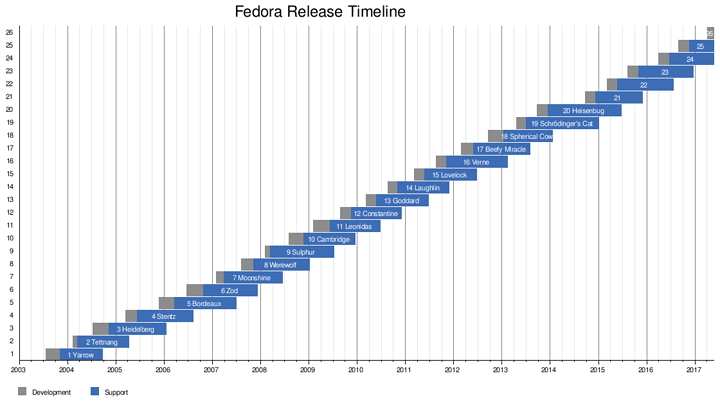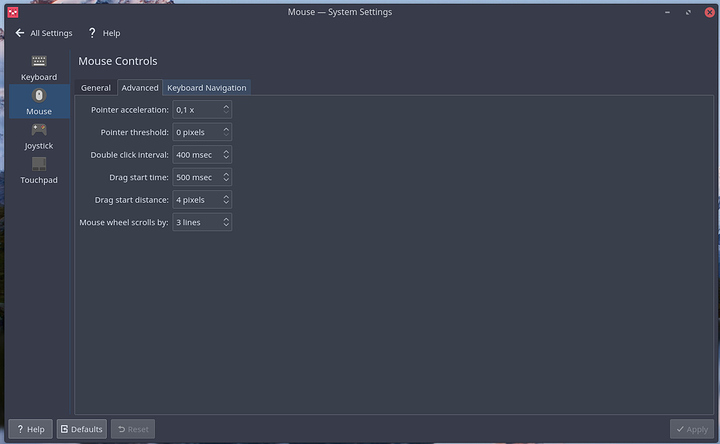+1 to this. I use it on my workstation at work for PHP and other web development.
It's the simplest way to just "get working". I prefer Arch for tinkering with and my home computer.
Yeah that's one of the major issues with Linux I tend to have. Just a complete lack of support for very basic features.
I read a development log for libinput regarding mouse movement. I personally 100% prefer 1:1 movement and seek to use the DPI on my mouse itself to adjust it. Acceleration is evil and will always be evil to me because I can't "learn" non-linear movement.
The log made it seem like the developer working on it found it strange anyone would want a 1:1 mouse profile, and it took months for a "flat scaling" profile to be implemented.
Pulseaudio on both Arch and Fedora "just works" mostly, but god is it a pile of crap.
Well, support for a version of Fedora lasts for 1 year, so you don't necessarily have to upgrade every 6 months.
I can tell you right now, all these problems you are facing are probably a "you" thing and not a "Linux" thing. I only say that because where you have issues, many others have none. And when I say "a you issue", I mean your hardware/installation method possibly.
I have 0 issues with Fedora on my workstation. It's pretty fantastic. I don't bother with Software Manager. I just use this site: http://rpmfind.net
You prefer to use Chrome. You also say you are careful about your privacy. So that leads me to the question....
Have you disabled Google's Phishing and Malware Protection?
That feature can be read about here in regards to disabling it: https://support.google.com/chrome/answer/99020?co=GENIE.Platform%3DDesktop&hl=en
To use that feature, Chrome has to send every URL access via Chrome to a Google server for checking against a database. If they're smart, they hash the URL before they get it. If they're really smart, they do that and still know what the real URL is.
Then, minimally, they have a URL and an IP Address. But they probably have lots of agent information too.
That feature is bad times for privacy.


